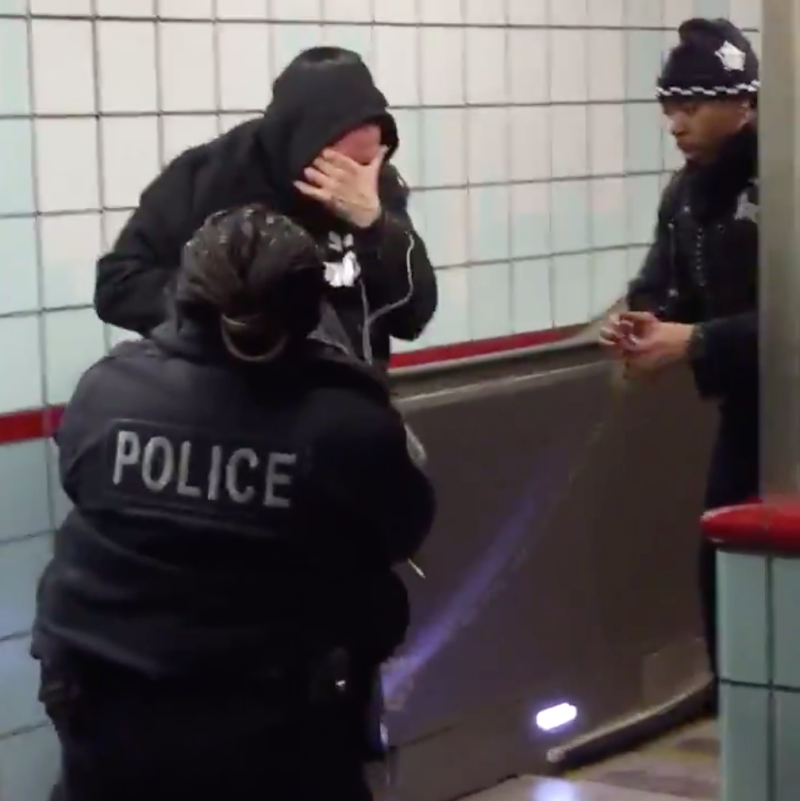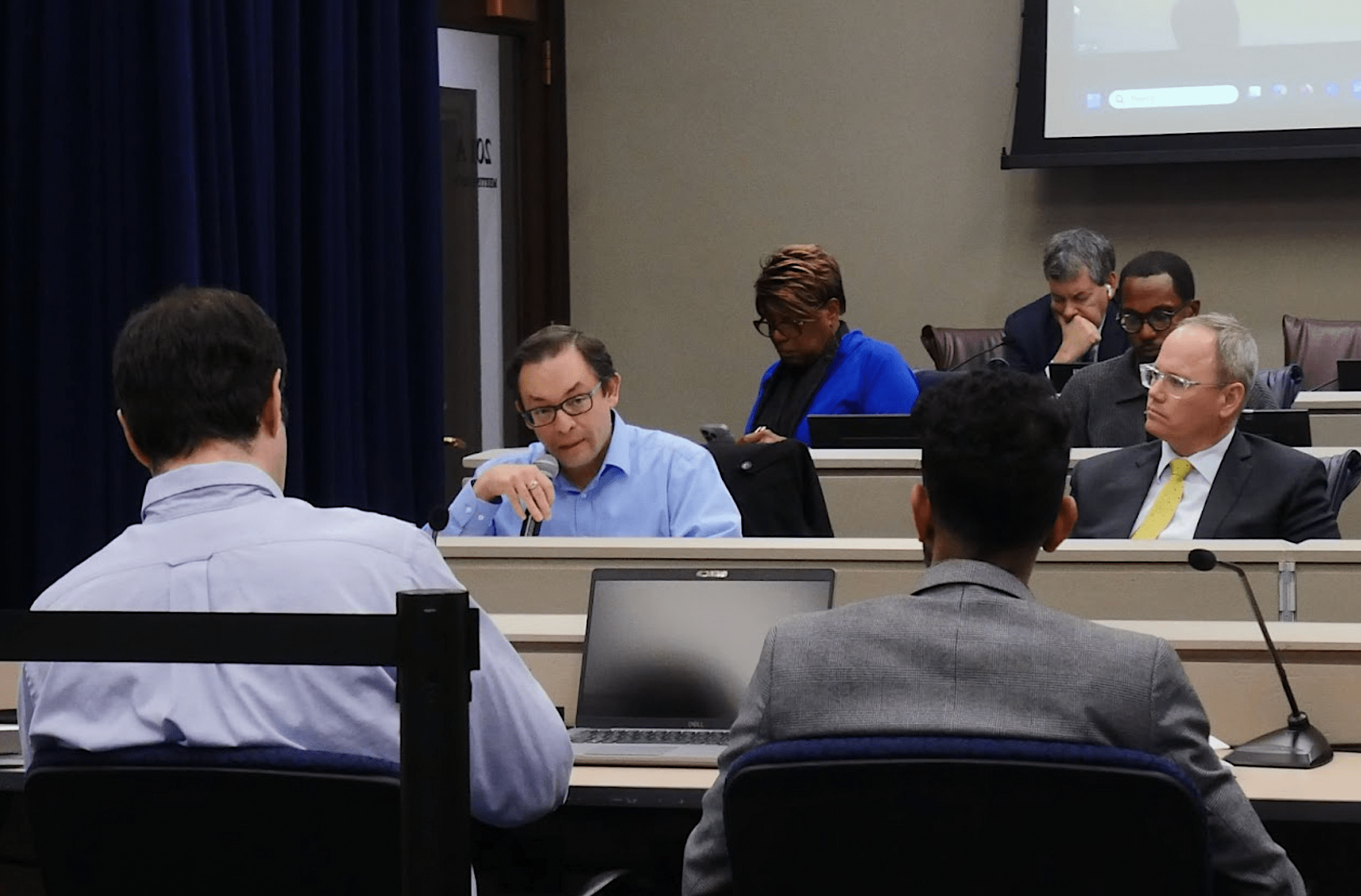Chicago's challenges with implementing effective and equitable policing practices are well-documented. Most recently, the case of an officer fatally-shooting Adam Toledo, 13, during a foot chase last week in Little Village has led for calls to reform the Chicago Police Department's foot-pursuit policy.
The issue of policing on public transportation is equally fraught. Transit riders shouldn't have to worry about personal security when they ride buses and trains, but during the pandemic it appears there has been a spike in violent crime on the CTA. For example, during the last month there have been at least three stabbing incidents on the Red Line. As such, some like Crain's Chicago columnist Greg Hinz have called for an increased police presence on transit.
But other recent cases have provided examples of what can go wrong when police are involved with transit enforcement. Last month after a South Shore Line police officer was called to the commuter railroad's Hegewisch station to remove a passenger who reportedly became aggressive after refusing to pay his fare, the rider caught the officer in a headlock, compressing his neck, and the officer shot the man in the abdomen.
And a year earlier in February 2020, there was another cautionary tale. The very day Mayor Lori Lightfoot announced that the city would be adding 50 new officers to the Chicago Police Department’s public transportation unit in response to a wave of violent robberies on the CTA, officers shot Ariel Roman, 33, twice after trying to detain him for walking between ‘L’ cars, inflicting life-changing injuries.
When the two officers tried to stop Roman for this minor breach of CTA rules, he fled. Rather than letting the unarmed man go, the officers pursued him and escalated the situation, pepper spraying and tasing him before recklessly shooting up a Grand Avenue Red Line station escalator after him, which could have easily resulted in the death of a bystander. Roman, who worked as a cook, was wounded in the buttocks and abdomen. As of last August, he was still forced to use a colostomy bag. He has filed a federal lawsuit agains the city of Chicago and the two officers.
This week there was a positive development in that case. On Tuesday, police department-related charges were filed against the officers, Melvina Bogard and Bernard Butler, according to a report in the Chicago Tribune by Jeremy Gorner. Both of the officers, who each joined the force in November 2017, just a few months before the shooting, are charged with breaking several CPD rules, including bringing discredit to the force; engaging in an unnecessary physical altercation; incompetency or inefficiency on the job; and disrespecting or mistreating a person.
Notably, these charges were filed just a few days after the Sun-Times reported that federal authorities have launched a criminal investigation into the case. Records show Roman was subpoenaed to testify before a federal grand jury last January and asked to provide medical records about his recovery.
Police chief David Brown and the Chicago Department of Law have moved to fire Bogard, the shooter, and Butler, who yelled at her "shoot him," the Tribune reported. The officers will have a hearing before the Chicago Police Board, which will make the final decision on the firing. While the officers have been on paid desk duty since the incident, they could be stripped of pay in advance of the hearing.
“It is clearly a step in the right direction to hold the officers accountable for the unjustified shooting of unarmed Ariel Roman,” Andrew M. Stroth, an attorney for Roman, told the Tribune. “Mr. Roman’s life has been changed forever based on the actions of these officers.”
It's good to hear that it's likely some justice will be served in the form of the two officers, whose actions were clearly extremely reckless and counterproductive to public safety, being removed from the force. Hopefully Roman's lawsuit will result in him being fairly compensated for his pain, suffering, loss of income, and any longterm disabilities from this totally avoidable shooting.
As for the question of how to promote safe conditions on transit, that's a much larger issue. But the Ariel Roman case starkly shows that police crackdowns on minor rule-breaking on transit is the wrong approach.





